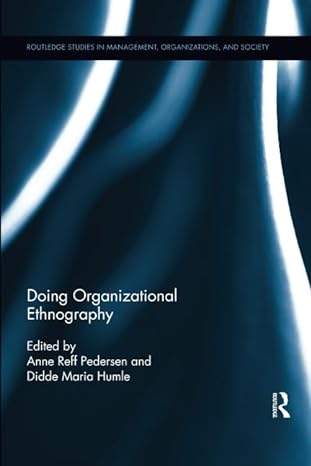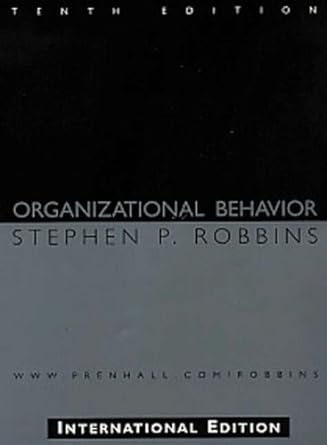Go back


Doing Organizational Ethnography(1st Edition)
Authors:
Didde Humle ,anne Reff Pedersen

Cover Type:Hardcover
Condition:Used
In Stock
Include with your book
Free shipping: April 04, 2024Popular items with books
Access to 3 Million+ solutions
Free ✝
Ask 10 Questions from expert
200,000+ Expert answers
✝ 7 days-trial
Total Price:
$0
List Price: $15.00
Savings: $15(100%)
Book details
ISBN: 1138617008, 978-1138617001
Book publisher: Routledge
Get your hands on the best-selling book Doing Organizational Ethnography 1st Edition for free. Feed your curiosity and let your imagination soar with the best stories coming out to you without hefty price tags. Browse SolutionInn to discover a treasure trove of fiction and non-fiction books where every page leads the reader to an undiscovered world. Start your literary adventure right away and also enjoy free shipping of these complimentary books to your door.
Doing Organizational Ethnography 1st Edition Summary: This book presents a new way of understanding organizational ethnography due to its strong emphasis on what the word organizational means in organizational ethnography. In the past five years, a new organizational studies research field has developed involving organizational ethnographies, which is when organizations are studied using ethnographical methods. This development has shed light on the methods and difficulties of organizational ethnography, and yet we argue that confusion still remains as to what organizational ethnographical approaches are.This edited volume offers students and scholars a profound understanding of organizational ethnography by presenting concrete examples, reflections and discussions of how to understand and adequately conceptualize the word organizational in organizational ethnography. All the chapters illustrate the work of analytically combining different organizational phenomena (e.g. strategy making, policymaking), analytical perspectives (e.g. sensemaking, narratives) and ethnographical methods (e.g. texts, observations, shadowing, interviews) and demonstrate different ways of doing organizational ethnography. At the end of each chapter, an experienced researcher in the field offers comments and discussion on the contributions of the chapter, providing reflections on the implications for research in the field to which they ascribe.In Doing Organizational Ethnography, organizational is defined as polyphonic ways of organizing based on the interactions of the many voices, discourses, practices and narratives in and around organizations and the book provides readers with in-depth reflections on what organizing and organizations become when doing organizational ethnography.
Customers also bought these books
Frequently Bought Together
Top Reviews for Books
Marisa Chapman
( 5 )
"Delivery was considerably fast, and the book I received was in a good condition."










